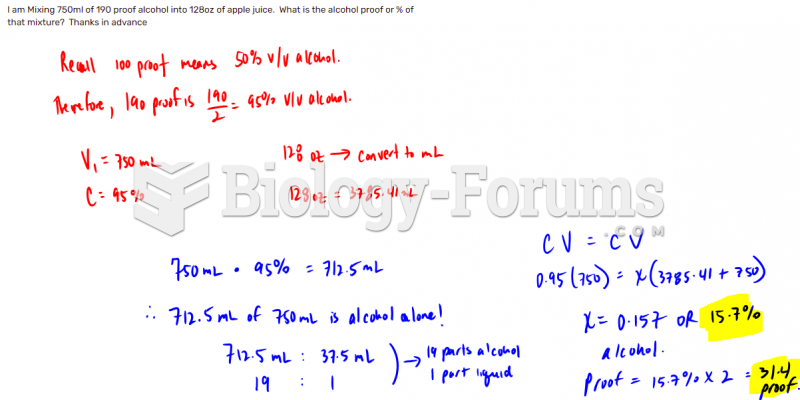|
|
|
The Centers for Disease Control and Prevention (CDC) was originally known as the Communicable Disease Center, which was formed to fight malaria. It was originally headquartered in Atlanta, Georgia, since the Southern states faced the worst threat from malaria.
In 1886, William Bates reported on the discovery of a substance produced by the adrenal gland that turned out to be epinephrine (adrenaline). In 1904, this drug was first artificially synthesized by Friedrich Stolz.
Cyanide works by making the human body unable to use oxygen.
Egg cells are about the size of a grain of sand. They are formed inside of a female's ovaries before she is even born.
Blood in the urine can be a sign of a kidney stone, glomerulonephritis, or other kidney problems.







